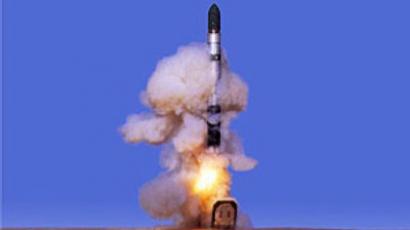“START agreement not last point in discussions” – expert
The main result of the START negotiations lies in the fact that the parties managed to find the mechanism of tackling such issues, experts believe.
Andrey Zagorsky from Moscow State University of International Relations told RT that the biggest asset from the talks is that both sides reached the point where they could sign the agreement.
“We are quite aware that the missile defense policy review by the US states clearly that any plans for deploying missile defense are not going to be subject to any restrictions by any agreement. That’s the policy of the US. And we are quite aware of this and we understand this is the limit which we can reach. However, the most important avenue to go will be to co-operate more closely in developing missile defenses and linking the systems which we might have within NATO, US and Russia. This will enable us to avoid many of the tensions in the future,” Zagorsky said.
“The process is going to continue," RT’s political commentator Peter Lavelle added. “This is not the last point in the discussions.”
“The agreement still leaves a significant majority of warheads and missiles in the two countries. Achieving progress will take years,” British American Security Council Paul Ingram said. “The agreement doesn’t tackle really fundamental challenges that we face. It does demonstrate that there is potential for improvement, but lots of tough questions remain.”
Zagorsky said that signing START is very symbolic.
“This tells all of us that resetting of the relations between the US and Russia may work. It will take more steps, but this was the first and most one in that direction – building trust into each other. Especially in the view of the forthcoming NPT review conference which is to happen in May,” Zagorsky added.
Sharon Squassoni, director for Strategic and International Studies, agrees that the treaty is a step further and that there are many more to come.
Philip Coyle, Senior Advisor from the Center for Defence Information in Washington, believes both Russia and the US are looking forward to more cuts in the future.
“This was an interim step, a very important step, but I think others will be coming later,” he said.
Vladimir Orlov, president of the PIR Center (Center of Political Research in Russia), believes the signing is not the last step in making the treaty work.
“It is true that we have a euphoria about signing the treaty, but it will take quite a lot of work, hopefully not too much time, [and] the treaty to be ratified and than to enter into force,” he said.
“It is very important now for the two leaders – for President Obama and for President Medvedev to really show the leadership not only towards signing but towards entrance into force of the treaty and then to implementation both of the treaty itself and on the whole very important agenda of our strategic cooperation,” Orlov added.
However, Dmitry Suslov of the Council of Foreign and Defense Policy does not think that the signing of the treaty is necessarily a sign of imporvement in US-Russia relations.
“I would not still talk about some bright future of US-Russia relations because it [treaty] very clearly showed some limitations,” thinks Dmitry Suslov of the council of Foreign and Defense Policy
He also says that deployment of a defense system in Eastern Europe will be “more of a sticking point now than before.”
“Because with signing this treaty- which does not limit the American plans on developing missile defense – we just made sure that, in the observable future, there will be no international regime covering missile defense –the US will have a free hand. And this will make Russia really concerned about the American plans,” Suslov adds.
Sergey Brilev, a news anchor at Rossia TV station, brings up a memo he received from the Center for American Progress, a group that supports the treaty’s ratification, which states conditions under which the US missile defense shield could still mar US-Russia relations.
“If step number two is further reductions then how can we do that if even those who support the idea of the treaty being ratified still make counter-suggestions, which in turn suggest that the global balance will not be guaranteed under certain circumstances,” said Brilev.













